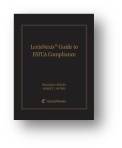The FBAR is an annual report and must be filed on or before June 30th! The FBAR must be filed electronically through FinCEN’s BSA E-Filing System. The application to file electronically is available at http://bsaefiling.fincen.treas.gov/
Who is considered an individual filer?
An individual filer is a natural person who owns a reportable foreign financial account or has signature authority but no financial interest in a reportable foreign financial account that
requires the filing of an FBAR for the reportable year. An individual who jointly owns an account with a spouse may file a single FBAR report as an individual filer
What if I file an FBAR with my spouse? How will I be able to meet the two-signature requirement and E-File?
FinCEN’s BSA E-File system’s capability only allows for one digital signature. Although the current FBAR instructions state that a spouse included as a joint owner, who does not file a separate FBAR, must also sign the FBAR in Item 44, the E-Filing process will not allow for both signatures on the same electronic form. So, to use the E-Filing system, a Form 114a (http://www.fincen.gov/forms/files/FBARE-FileAuth114aRecordSP.pdf ) should be completed designating which spouse will file the FBAR. The Form 114a is retained by the filer and not sent to FinCEN. The spouse designated can then use the BSA E-Filing System to E-File the FBAR.
Who Must File an FBAR?
A United States person that has a financial interest in or signature authority over foreign financial accounts must file an FBAR if the aggregate value of the foreign financial accounts exceeds $10,000 at any time during the calendar year
What is a Financial Account?
A financial account includes, but is not limited to, a securities, brokerage, savings, demand, checking, deposit, time deposit, or other account maintained with a financial institution (or other person performing the services of a financial institution). A financial account also includes a commodity futures or options account, an insurance policy with a cash value (such as a whole life insurance policy), an annuity policy with a cash value, and shares in a mutual fund or similar pooled fund (i.e., a fund that is available to the general public with a regular net asset value determination and regular redemptions).
What is a Financial Interest?
A United States person has a financial interest in a foreign financial account for which:
1. the United States person is the owner of record or holder of legal title, regardless of whether the account is maintained for the benefit of the United States person or for the benefit of another person; or
2. the owner of record or holder of legal title is one of the following:
a. An agent, nominee, attorney, or a person acting in some other capacity on behalf of the United States person with respect to the account;
b. A corporation in which the United States person owns directly or indirectly:
(i) more than 50 percent of the total value of shares of stock or
(ii) more than 50 percent of the voting power of all shares of stock;
c. A partnership in which the United States person owns directly or indirectly: (i) an interest in more than 50 percent of the partnership’s profits (e.g., distributive share of partnership income taking into account any special allocation agreement) or (ii) an interest in more than 50 percent of the partnership capital;
d. A trust of which the United States person: (i) is the trust grantor and (ii) has an ownership interest in the trust for United States federal tax purposes. See 26 U.S.C. sections 671-679 to determine if a grantor has an ownership interest in a trust;
e. A trust in which the United States person has a greater than 50 percent present beneficial interest in the assets or income of the trust for the calendar year; or
f. Any other entity in which the United States person owns directly or indirectly more than 50 percent of the voting power, total value of equity interest or assets, or interest in profits.
Are IRA Owners and Beneficiaries included?
An owner or beneficiary of an IRA is not required to report a foreign financial account held in the IRA.
Are Participants in and Beneficiaries of Tax-Qualified Retirement Plans included?
A participant in or beneficiary of a retirement plan described in Internal Revenue Code section 401(a), 403(a), or 403(b) is not required to report a foreign financial account held by or on behalf of the retirement plan.
What if I did not file FBAR in previous years?
See my previous article https://profwilliambyrnes.com/2014/06/18/new-offshore-voluntary-disclosure-program-ovdp-announced-with-50-penalty/
Also see this article: https://profwilliambyrnes.com/2014/06/11/why-is-the-irs-softening-the-offshore-voluntary-compliance-program/
The LexisNexis® Guide to FATCA Compliance (2nd Edition) comprises 34 Chapters by 50 industry experts grouped in three parts: compliance program (Chapters 1–4), analysis of FATCA regulations (Chapters 5–16) and analysis of Intergovernmental Agreements (IGAs) and local law compliance challenges (Chapters 17–34), including intergovernmental agreements as well as the OECD’s TRACE initiative for global automatic information exchange protocols and systems. A free download of the first of the 34 chapters is available at http://www.lexisnexis.com/store/images/samples/9780769853734.pdf

